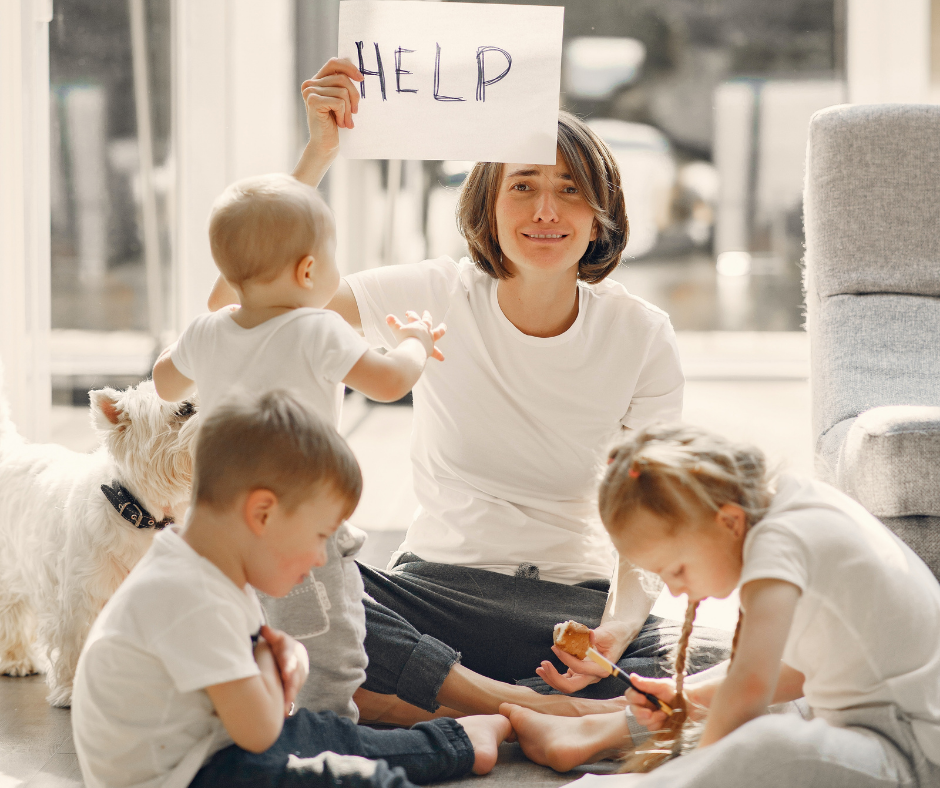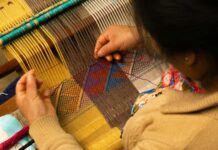 “You never keep your promises, Mom.”
“You never keep your promises, Mom.”
I was floored when my son hit me with this bomb. Of course I keep my promises! Okay, I don’t MAKE promises very often because I don’t want to be accused of not keeping them, but when I say I’m going to do something, I do it…don’t I?
“That’s not true,” I replied, hurt evident in my voice.
“Yeah it is,” he countered. “You say you’re going to do this, but then you always forget.”
Oof. Okay, that is definitely true.
Truth be told, I’ve always been pretty forgetful, but I got by. I was a meticulous planner person all through school, writing down every assignment, constantly chasing the thrill of satisfaction when I ran my pen across the page to mark off completed tasks. I developed excellent note-taking skills, going back to re-copy and color code every line when I got home. I would arrange and rearrange my folders over and over and over, convinced I was “getting organized” when really I was procrastinating actually doing any work. I was always making lists and checking them twice, three times, four hundred times. I’ve always had to devote excessive energy to staying organized and keeping track of things, but I was an A/B student in advanced classes all the way through college. I graduated with honors. I was smart.
Although I excelled in school, I found the workplace to be more of a challenge. It’s not that my jobs were particularly difficult, but my intelligence made employers trust me. Meaning, they let me be in charge of getting the work done in my own time without constantly checking in, and for some reason I never could pull that off. I would spend two days reorganizing misplaced files in alphabetical order but forget to prepare my monthly reports. I could talk to clients and volunteers and donors, but I would stare at a blank screen for days trying to write a training manual for the very things I did every day. I couldn’t tell you why seemingly simple tasks were so difficult for me to even begin, much less accomplish; I thought I must just be lazy.
When I left the workforce to stay home with three kids under four, I really thought my brain might explode, but what mom of littles doesn’t feel the same way? Every second of every day was constant stimulation: someone needing to nurse, someone needing a snack, someone making a mess, someone crying to be held, someone hoarding the toys, everyone needing ME. Those precious, precious hours of nap time were filled with clean up, chores, and as often as possible naps of my own; in the evenings after bedtime, there was my husband needing me to be his partner, friend, wife. Of course my brain was fried. Of course I was always late to appointments. Of course my mind was racing a mile a minute. This is mom brain.
But what if it’s not just that? What if there’s more?
A few years ago I was on the verge of a breakdown when I finally reached out for help. I had gotten up early, before anyone else in the house, determined to have a few minutes of quiet before the chaos of the day began. My nine-year-old daughter, knowing I intended this to be “mommy’s time,” apologized when she woke up early and walked into the kitchen for a glass of water. “I’ll be real quick, Mommy,” she whispered as she tiptoed over to the fridge. In the silence of that morning, the sound of her bare feet gently tapping across the laminate floor sounded like someone standing right next to me clapping loudly in my ear. My brain physically hurt, and I knew something was off. My doctor prescribed anxiety medication, some vitamins, and a gym membership with childcare so I could have time to myself while working up some brain-boosting endorphins. All of those things helped, for sure, but four years later, I was still forgetting things, fighting myself to just pick up the phone to do something boring or stressful like calling the insurance company, and taking a magnesium supplement every afternoon to get through the after-school “witching hour” of 4-6pm.
Thanks to the beautiful community known as the internet (and one particularly dedicated friend who was convinced I had been under-diagnosed), I started looking for more answers, answers you may be searching for too. Go ahead and dive down the rabbit holes of ADHD TikTok, Tumblr, and Instagram, friend. Make a folder on your phone for memes that resonate with you. Rack your memories with new eyes to interpret what you’ve probably been experiencing all your life:
What if your constantly running mental list is actually racing thoughts, thoughts that feel like a swarm of bees constantly buzzing in your brain so you can’t keep track of any of them?
What if feeling “touched out” is really sensory overload, so much that your brain interprets a toddler’s hand on your thigh as pain or the sound of children laughing as a siren wailing in your ear?
What if your brain fog isn’t solved with more coffee, but it’s actually an absence of working memory, so you really do forget why you walked upstairs until you go back down and realize you don’t have shoes on?
That’s not mom brain, sis; you have ADHD.
When I was finally diagnosed with ADHD at 36-years-old, I wasn’t disappointed in the years I had lost; I was just so relieved. This one little acronym somehow made sense of my whole life up to this point. All my life I had recognized my symptoms as being abnormal, but like many women with ADHD, I saw them as evidence that I am a “hot mess mom” or, when I was alone with myself, evidence that I am just a big fat failure. Why was it so hard for me to remember the little things? Why did I waste so much money on library fines because I had that book on my counter for weeks before I got around to returning it? Why did my produce always go bad because I forgot what I was going to cook with it? Why couldn’t I just get my act together like a normal person?? I had spent so many years punishing myself for being different from what I saw around me, but now that I have this diagnosis, I can start learning how to adapt.
As it turns out, ADHD is incredibly under-diagnosed in women, and many don’t receive their initial diagnosis until they are in their 20s and 30s, finally seeking out help because they feel like losers, just like I did. Part of the problem is that the earliest studies of ADHD involved hyperactive young boys, and symptoms just look different in girls as well as in adults. According to Maria Yagoda for The Atlantic, “Women with the disorder tend to be less hyperactive and impulsive, more disorganized, scattered, forgetful, and introverted. ‘They’ve alternately been anxious or depressed for years,’ Littman says. ‘It’s this sense of not being able to hold everything together.’” (Oh, hello me.) In addition, she notes that symptoms in women can intensify as estrogen production increases, so puberty and childbirth can be catalysts for ADHD symptoms in women rather than solutions, as is often the case for young boys.
We women tend to be hard on ourselves anyway, comparing ourselves to other moms, carrying most of the mental load of our households, often turning to doing more or doing better to help our self-esteem, only to find ourselves disappointed and worse off than before when we don’t measure up, we can’t keep up, our best efforts are just never enough.
If you’re like me, struggling with the things that look to be so easy for everyone else, that seem like they should be easy, constantly beating you down with feelings of inadequacy, take your own trip down the rabbit hole and see what you find. Check out this list from ihaveadhd.com to see how ADHD symptoms are categorically the same with kids and adults, but the ways they manifest in adults simply looks different. In fact, I realized that over the years I have developed adaptations to mask the symptoms that really bug me about me. For instance, impulsivity is a classic marker of ADHD, so whereas many people interrupt a lot and make rash decisions, I try so hard not to interrupt that by the time I get a turn to speak I have forgotten what the other person was saying and have trouble formulating an appropriate response. I am paralyzed by even the smallest decisions, like whether I want sweet tea or Diet Coke with my chicken sandwich, and I live in constant FOMO if I made the “wrong” choice. As you’re reading through the list of symptoms, consider that by this time you may have learned a way around these qualities, but maybe they’re the things that cause you the greatest anxiety or that you see as character flaws.
What we know about ADHD has changed since we were kids and it was a “disease” for hyper little boys. We now know that this is a neurodivergence, simply a different way our brains process information, and there is hope! Knowing this about ourselves allows us to learn from others who have gone before us, develop new coping mechanisms, create new systems of behavior to address our symptoms, and yeah, even prescription medication to help if that’s your thing. I knew my mind was always racing, but I didn’t realize just how LOUD my thoughts were until I started medication and it was all of a sudden quiet. It’s not a cure-all, but I finally feel capable of doing the things that have made me feel like a failure for years.
If you’ve made it this far, I’m willing to bet that this all sounds exactly like you or someone you love. Maybe your wife texted this to you asking you to read it for her because she got distracted halfway through and wants to know if you think it sounds like her (psst, that’s a yes). I hope that rather than feeling sad at the challenges ahead, you will feel relief, hope, and assurance that you are not a failure, you are not alone, and there are lots of ways you can learn to navigate your ADHD without shame. Call your doctor, talk to your therapist, leave a comment below.






















Thanks for this! My daughter was just diagnosed and as the doctor was going through the list of her (now obvious) symptoms, I just kept thinking…oh no, that’s me! I thought this was all normal because that’s ME TOO! And when I say my daughter was JUST diagnosed, I mean Friday (less than a week ago). The synchronicity of this article isn’t lost on me. I’m giving my doctor a call today. Thanks for sharing!!
Thanks for sharing, Nikki! I have had the very same experience with my son. My husband would complain about certain behaviors and I was like like “everyone does that!! …wait, right??” Ummm yeah apparently that’s an ADHD thing. I’m glad you and your daughter are both finding resources to help. Good luck on your journey!
Excellent post Mary Beth! Thank you for sharing. I would also like to share this with others.
OH. MY. GOSH. Mary Beth! This is literally as if I wrote it myself! Except the good grades thing! 😜 But seriously!! I am already on the list for a neurologist appointment, but it’s not until December. If you think about it, would you mind sharing who you saw, and how they came up with the diagnosis? And how quickly they can see patients? I am so thankful for this post!! And for Holly who shared it with me! Love to you and your sweet family! You are such a great writer!!